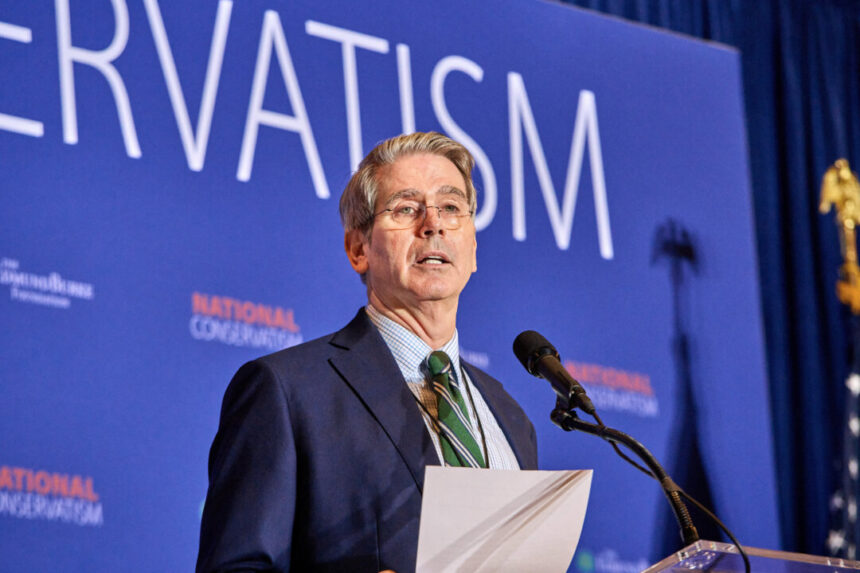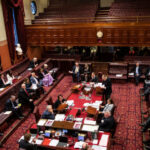President-elect Donald Trump announced Scott Bessent as his Treasury secretary on Nov. 22, following weeks of speculation. Trump praised Bessent as a respected international investor and strategist, highlighting his success story as a representation of the American Dream. Bessent, a Wall Street veteran, founded Key Square Group and gained wealth by betting against the Japanese yen with George Soros a decade ago. He has a background in investment firms and academia, with philanthropic endeavors as well. Bessent is known for his support of hospitals and his involvement in political fundraising. As a cryptocurrency advocate, he aligns with Trump’s stance on digital assets. Bessent also supports tariffs but emphasizes the need for a gradual approach to implementation. His economic plan includes goals of 3% real economic growth through deregulation and tax reform. Energy production, combatting inflation, and providing guidance on investment competence for individuals to engage in investments—allowing the private sector to replace excessive government spending.
As per Bessent, his three-part plan was influenced by the late Japanese Prime Minister Shinzo Abe’s “three arrows” economic recovery strategy, also referred to as “Abenomics.”
Bessent also expressed his intention to encourage Trump to publicly declare his objective of reducing the deficit to 3 percent of GDP “by the conclusion of his term.”
During a Manhattan Institute conference in June, Bessent remarked, “He did not lead us to a 6 percent or 7 percent [of GDP] deficit. They averaged 4 under his leadership, so we need to bring that down to 3.”
The U.S. government budget deficit is the most substantial among OECD nations, amounting to nearly 6 percent of GDP last year. Following the U.S., Japan (5.6 percent), France (3.8 percent), and the United Kingdom (3.6 percent) hold the next highest deficits.
Despite no economic downturn, there has been a significant increase in the federal deficit.
“A robust economy generally results in higher tax revenues for the government and reduced expenditures on unemployment benefits, leading to improved government finances,” stated Torsten Slok, Apollo’s chief economist, in a note.
“If growth slows down and the unemployment rate rises, the fiscal position of the U.S. will further deteriorate.”
Over the past few years, the treasury has inundated global capital markets with trillions of dollars in bonds. A considerable portion of this issuance has been focused on short-term debt securities to manage escalating deficits and increasing interest rates.
The incoming Treasury head will encounter a scenario akin to that of Treasury Secretary Janet Yellen: escalating debts and deficits.
According to the Congressional Budget Office, the annual federal deficit is projected to range between $1.75 trillion and $2.86 trillion over the next decade.
Although the national debt was not a primary focus during the 2024 election campaign, the Trump administration believes that the country’s fiscal health can be enhanced over the next four years.
The national debt recently surpassed the $36 trillion mark, as indicated by the Treasury’s Debt-to-the-Penny dashboard.
“He’s Advocated for a ‘Shadow Fed Chair'”
Recently, Bessent proposed the idea of Trump appointing a “shadow Fed Chair.” This involves nominating Powell’s successor before the completion of his second term.
“You could make the earliest Fed nomination and establish a shadow Fed chair,” suggested Bessent. “And based on the concept of forward guidance, nobody will really care about what [Fed Chair Jerome] Powell has to say anymore.”
If Trump implements his three-point economic plan, the Fed could transition “into a proper easing cycle.”
The relationship between Trump and Powell is being closely monitored on Wall Street.
Powell stated at a recent post-meeting press conference that he would not resign if Trump requested his resignation, as such an action is “not permissible by law.”
The president-elect has affirmed that he would let Powell serve out the rest of his term, which concludes in 2026, “especially if I believed he was making the right decisions.”
Trump has expressed his belief that presidents should have a say in the Fed’s monetary policy decisions, though he does not think the commander-in-chief should have the final say.
That being said, the interaction between the White House and the Federal Reserve could be tumultuous over the next two years, causing investors to be wary of uncertainty. Can you rephrase this sentence? Please provide an original sentence or paragraph for me to rewrite.
Source link





